|
Books Should Be Free Loyal Books Free Public Domain Audiobooks & eBook Downloads |
|
|
Books Should Be Free Loyal Books Free Public Domain Audiobooks & eBook Downloads |
|
Myths and Legends |
|---|
|
Book type:
Sort by:
View by:
|
By: Edric Vredenberg (1860-?) | |
|---|---|
 My Book Of Favourite Fairy Tales
My Book Of Favourite Fairy Tales
This is a collection on well-known, favorite fairy stories, most of which we all grew up with. They were edited and retold in this volume. | |
By: Florence Holbrook (1860-1932) | |
|---|---|
 Book of Nature Myths
Book of Nature Myths
This is a book of myths told by the Indians of North America to their children. They could be compared to present day Fairy Tales. | |
By: Apollonius Rhodius (3rd Cent. -3rd Cent.) | |
|---|---|
 Argonautica
Argonautica
The story of how Jason and a group of famous heroes of Greece took to sea in the Argos has been told many times, before and after Apollonius of Rhodes, wrote his Argonautica, in the 3rd century b.C.. It is not only the oldest full version of the tale to arrive to our days, but also the only extant example of Hellenistic epic. This was already a popular myth by the times of Apollonius, who makes the story of how Jason and the Argonauts sail to Colchis in search of the Golden Fleece, and have to go through a lot of adventures to fulfill their task, a mix of simple narrative and scholarly catalog. The Argonautica had a deep impact on European literature as a whole. | |
By: Joseph Jacobs (1854-1916) | |
|---|---|
 More English Fairy Tales
More English Fairy Tales
"This volume will come, I fancy, as a surprise both to my brother folk-lorists and to the public in general. It might naturally have been thought that my former volume (English Fairy Tales) had almost exhausted the scanty remains of the traditional folk-tales of England. Yet I shall be much disappointed if the present collection is not found to surpass the former in interest and vivacity, while for the most part it goes over hitherto untrodden ground, the majority of the tales in this book have either never appeared before, or have never been brought between the same boards." | |
By: Alice Gerstenberg (1885-1972) | |
|---|---|
 Alice in Wonderland (Drama)
Alice in Wonderland (Drama)
A dramatization of Lewis Carroll’s Alice’s Adventures in Wonderland and Through the Looking Glass for the stage. In this version, Alice goes through the looking glass and encounters a variety of strange and wonderful creatures from favorite scenes of Alice's Adventures in Wonderland the Through the Looking Glass. Including a conversation with the Red and White Queens, encounters with Humpty Dumpty, the Mock Turtle, the Cheshire Cat, and the Caterpillar, and of course everyone's favorite Mad Tea Party. | |
By: William Scott-Elliot (?-1930) | |
|---|---|
 Story of Atlantis and the Lost Lemuria
Story of Atlantis and the Lost Lemuria
This volume contains two publications by W. Scott-Elliot, namely The Story of Atlantis (1896) and The Lost Lemuria (1904). A theosophist and believer of the Occult, W. Scott-Elliot gives us a description of the history and structure of Atlantis and Lemuria, along with what he considers evidence of this. The Story of Atlantis is prefaced by Alfred Percy Sinnett. | |
By: Augusta Stevenson (1869-1976) | |
|---|---|
 Children's Classics in Dramatic Form
Children's Classics in Dramatic Form
| |
By: Paul Creswick (1866-1947) | |
|---|---|
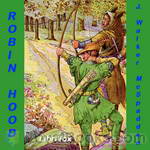 Robin Hood
Robin Hood
"Well, Robin, on what folly do you employ yourself? Do you cut sticks for our fire o' mornings?" Thus spoke Master Hugh Fitzooth, King's Ranger of the Forest at Locksley, as he entered his house.Robin flushed a little. "These are arrows, sir," he announced, holding one up for inspection.Dame Fitzooth smiled upon the boy as she rose to meet her lord. "What fortune do you bring us to-day, father?" asked she, cheerily.Fitzooth's face was a mask of discontent. "I bring myself, dame," answered he, "neither more nor less... | |
By: Dandin | |
|---|---|
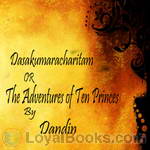 Hindoo Tales or the Adventures of Ten Princes
Hindoo Tales or the Adventures of Ten Princes
This book describes the adventures of ten Kumaras, i.e., young men, (all of whom are either princes or sons of royal ministers), as narrated by the men themselves. These narratives are replete with accounts of demigods, ghosts, gamblers, intrigues with voluptious women, astonishing coincidences, cockfights, anthropophagy, sorcery, robberies, murders and wars. | |
By: Loretta Ellen Brady | |
|---|---|
 Green Forest Fairy Book
Green Forest Fairy Book
This is a volume of original fairy tales by Loretta Ellen Brady. | |
By: Fanny Coe [editor] (1866-1956) | |
|---|---|
![The Book of Stories for the Storyteller by Fanny Coe [editor]](/image/layout2/The-Book-of-Stories-for-the-Storyteller.jpg) The Book of Stories for the Storyteller
The Book of Stories for the Storyteller
This is a delightful collection of 43 fairy tales (both old and new), folk lore, myths and real life stories by a variety of authors, brought together by writer Fanny E Coe. They are mostly short and are fun to listen to by children and adults and most teach valuable lessons about life. Some of the stories are: A Legend of the North Wind; How the Robin's Breast became Red; The Little Rabbits; St Christopher; The Necklace of Truth; A Night with Santa Claus; The Wolf-Mother of Saint Ailbe; Pocahontas and How Molly spent her Sixpence | |
By: Anonymous | |
|---|---|
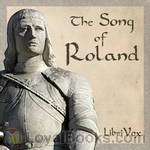 The Song of Roland
The Song of Roland
The Song of Roland is an epic poem, originally sung in Old French. It tells the story of the Battle of Roncevaux Pass in 778. This is an English translation. Translated by Charles Kenneth Scott-Moncrieff. | |
By: Unknown | |
|---|---|
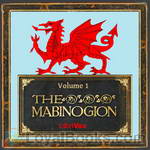 The Mabinogion
The Mabinogion
Sample a moment of magic realism from the Red Book of Hergest: On one side of the river he saw a flock of white sheep, and on the other a flock of black sheep. And whenever one of the white sheep bleated, one of the black sheep would cross over, and become white; and when one of the black sheep bleated, one of the white sheep would cross over, and become black. Before passing on to the Mabinogion proper, Lady Charlotte Guest devotes Volume I of her compilation of medieval Welsh tales to three brief romances of Arthur’s Court... | |
By: Asa Don Dickinson (1876-1960) | |
|---|---|
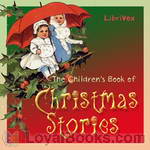 The Children's Book of Christmas Stories
The Children's Book of Christmas Stories
Many librarians have felt the need and expressed the desire for a select collection of children's Christmas stories in one volume. This book claims to be just that and nothing more. Each of the stories has already won the approval of thousands of children, and each is fraught with the true Christmas spirit. It is hoped that the collection will prove equally acceptable to parents, teachers, and librarians. | |
By: Jacob Abbott (1803-1879) | |
|---|---|
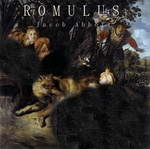 Romulus
Romulus
Jacob Abbott wrote many historical books for children. He was careful to ensure historical accuracy, and as he said himself in the preface to this book "Whatever of interest ... these stories may possess is due solely to the facts themselves which are recorded in them, and to their being brought together in a plain, simple, and connected narrative."This is the story of Romulus, the founding of Rome and the early years of its history, written in a way both readable and enjoyable for adults and children alike. | |
By: Thomas Whittaker (1856-1935) | |
|---|---|
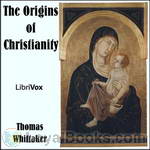 The Origins of Christianity
The Origins of Christianity
The full title of this book is The Origins of Christianity with an Outline of Van Manen’s Analysis of The Pauline Literature. Willem Christiaan van Manen (1842-1905) was a Dutch theologian. The vast majority of van Manen’s radical criticism of the New Testament and Christian origins has never been translated into English.In this book, Thomas Whittaker outlines the arguments of van Manen for an English-speaking audience. Van Manen’s work is not now generally known, but his views obtained notoriety by the articles and books that he wrote, in which he maintained that none of the Epistles that bear the Apostle Paul’s name were in fact written by him... | |
By: Euripides (480-406 BC) | |
|---|---|
 Medea
Medea
Euripides' tragedy focuses on the disintegration of the relationship between Jason, the hero who captured the Golden Fleece, and Medea, the sorceress who returned with him to Corinth and had two sons with him. As the play opens, Jason plans to marry the daughter of King Creon, and the lovesick Medea plots how to take her revenge. | |
By: Joseph Jacobs | |
|---|---|
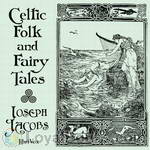 Celtic Folk and Fairy Tales
Celtic Folk and Fairy Tales
Celtic Fairy Tales is a collection of 25 folk and fairy stories collected from Ireland and Scotland. At what I imagine is the Frontispiece, or the dedication page, is the phrase: “SAY THIS Three times, with your eyes shut ‘Mothuighim boladh an Éireannaigh bhinn bhreugaigh faoi m’fhóidín dúthaigh.’And you will see/What you will see_” A loose translation of this Gaelic phrase is “I sense the smell of a sweet, enchanting Irishman around my dear homeplace.” | |
By: Hermann Gunkel | |
|---|---|
 The Legends of Genesis
The Legends of Genesis
The Legends of Genesis is the English translation of the introduction to Gunkel’s massive commentary, Genesis. Gunkel uses form critical analysis on the text of Genesis to determine the various genres of the biblical legends and their significance to the authors. Gunkel also uses form criticism to uncover buried clues as to the constituent sources of the text. Gunkel offers his hypothesis to explain how the various sources came to be combined and redacted, and how the text later came to be attributed to Moses. | |
By: John Cargill Brough (1834-1872) | |
|---|---|
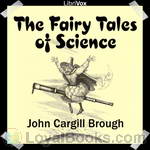 The Fairy Tales of Science
The Fairy Tales of Science
This book, written in the mid 19th century and illustrated by Charles H. Bennett, provides an entertaining introduction to topics in science for children. In each chapter, the author uses a popular myth or fairy tale to lay the groundwork for an equally fascinating "fairy tale of science" full of interesting facts and real life examples. | |
By: Arthur Conan Doyle (1859-1930) | |
|---|---|
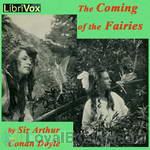 The Coming of the Fairies
The Coming of the Fairies
After a number of deaths in his close family, Sir Arthur Conan Doyle turned to spiritualism in hope of finding proof of the afterlife. Being open in this way, he wanted to believe that spirits and other supernatural being including fairies were real. Because of this he believed the photographs of fairies taken by the Cottingley girls were proof of the existence of such beings. In this book he presents his stance on the issue. Eventually it was proven that the photographs were indeed a hoax. | |
By: W. O. E. Oesterley (1866-1950) | |
|---|---|
 Immortality and the Unseen World
Immortality and the Unseen World
The full title of this book is Immortality and the Unseen World - A Study in Old Testament Religion. Oesterley describes the beliefs that pre-Christian Hebrews and Semites held regarding the afterlife and the immortal nature of humans. The nature, form and evolution of these beliefs are derived from the Tanakh (Old Testament), comparisons with the beliefs and mythologies of neighboring cultures, and archeological finds. To develop a full study, additional beliefs of these people are also considered, including the beliefs of the constituent parts of humans; demonology, angelology, shades and the Satan; the home of the dead, ancestor worship, necromancy, and burial customs... | |
By: Arthur Machen (1863-1947) | |
|---|---|
 The Angels of Mons
The Angels of Mons
The Angels of Mons is a popular legend about a group of angels who supposedly protected members of the British army in the Battle of Mons at the outset of World War I. The story is fictitious, developed through a combination of a patriotic short story by Arthur Machen, rumours, mass hysteria and urban legend, claimed visions after the battle and also possibly deliberately seeded propaganda. | |
By: Edgar Thurston (1855-1935) | |
|---|---|
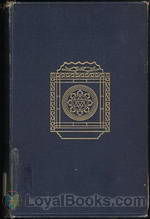 Omens and Superstitions of Southern India
Omens and Superstitions of Southern India
This book deals mainly with some aspects of what may be termed the psychical life of the inhabitants of the Madras Presidency, and the Native States of Travancore and Cochin. | |
By: Francis William Bourdillon (1844-1912) | |
|---|---|
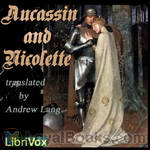 Aucassin and Nicolette.
Aucassin and Nicolette.
Aucassin and Nicolette is a medieval romance written in a combination of prose and verse called a “song-story.” Created probably in the early 13th century by an unknown French author, the work deals with the love between the son of a count and a Saracen slave girl who has been converted to Christianity and adopted by a viscount. Since Aucassin’s father is strongly opposed to their marriage, the two lovers must endure imprisonment, flight, separation in foreign lands, and many other ordeals before their ardent love and fierce determination finally bring them back together... | |
By: George W. Bateman | |
|---|---|
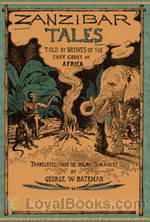 Zanzibar Tales
Zanzibar Tales
If you have read any accounts of adventure in Africa, you will know that travelers never mention animals of any kind that are gifted with the faculty of speech, or gazelles that are overseers for native princes, or hares that eat flesh. No, indeed; only the native-born know of these; and, judging by the immense and rapid strides civilization is making in those parts, it will not be long before such wonderful specimens of zoölogy will be as extinct as the ichthyosaurus, dinornis, and other poor creatures who never dreamed of the awful names that would be applied to them when they were too long dead to show their resentment... | |
By: Unknown | |
|---|---|
 National Nursery Book
National Nursery Book
"The Publishers offer in this little volume of well known and long loved stories to their young readers. The tales which have delighted the children of many generations will, they feel assured, be equally welcome in the nurseries of the present day, which, with the popularity and antiquity of the contents of the volume, justify them in styling it The National Nursery Book." Red Riding Hood, The Three Bears, Mother Hubbard, Cinderella and many other well known stories, poems, nursery rhymes and songs are included in this little book. Note that the Punch and Judy story does include a lot of gratuitous violence but then that is what Punch and Judy seem to be all about, eh? | |
By: Aeschylus (c. 525/524-456/455 BC) | |
|---|---|
 Prometheus Bound (Buckley Translation)
Prometheus Bound (Buckley Translation)
"Prometheus Bound" is the only complete tragedy of the Prometheia trilogy, traditionally assumed to be the work of Aeschylus. Jupiter has turned against Prometheus for protecting mankind and has ordered him to be chained to a rock. But Prometheus is comforted by his knowledge of a way to bring about the downfall of Jupiter. | |
By: Virgil (70 BC - 19 BC) | |
|---|---|
 Aeneid, prose translation
Aeneid, prose translation
The Aeneid is the most famous Latin epic poem, written by Virgil in the 1st century BC. The story revolves around the legendary hero Aeneas, a Trojan prince who left behind the ruins of his city and led his fellow citizens to Italy, where he became the ancestor of the Romans. The first six of the poem’s twelve books tell the story of Aeneas’ wanderings from Troy to Italy, while the poem’s second half treats the Trojans’ victorious war upon the Latins. This is the recording of J.W.MacKail's prose translation. | |
By: Various | |
|---|---|
 King's Daughter and Other Stories for Girls
King's Daughter and Other Stories for Girls
A charming collection of short stories for young girls, including The King's Daughter, The Old Brown House, A Story for School Girls, What One Lie Did, Two Ways of Reading the Bible, Courtesy to Strangers, Live for Something, and Jennie Browning. Each story subtly teaches an important lesson. | |
By: Anonymous | |
|---|---|
 Saga of Gunnlaug the Worm-Tongue and Raven the Skald
Saga of Gunnlaug the Worm-Tongue and Raven the Skald
| |
By: Euripides (484 BC - 406 BC) | |
|---|---|
 Alcestis
Alcestis
Alcestis is the earliest surviving play by Euripides. Alcestis, the devoted wife of King Admetus, has agreed to die in his place, and at the beginning of the play she is close to death. In the first scene, Apollo argues with Thanatos (Death), asking to prolong Alcestis' life, but Thanatos refuses. Apollo leaves, but suggests that a man will come to Pherae who will save Alcestis. Euripides' play is perhaps the most unusual Greek drama ever written: a tragedy that is not a tragedy. | |